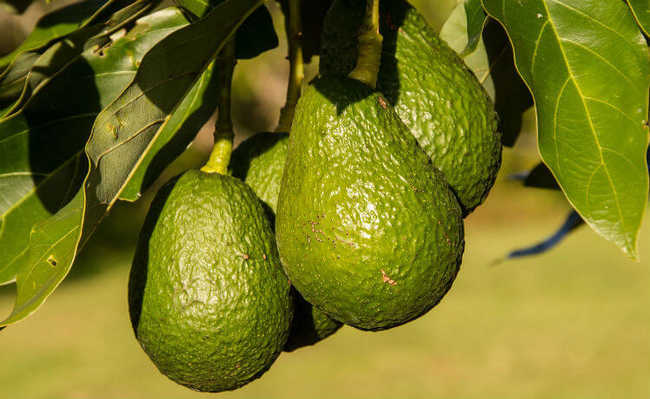What You Need to Know About Sulfur Rich Foods
Sulfur-rich foods can cause side effects, but they also have benefits.

Edited and resized image of Cyrus Crossan is available on Unsplash
Sulfur is one of the main elements in the atmosphere. But it is also present in the soil where food is grown and plays an important role in the body, including building and repairing DNA and protecting cells from damage. Thus, including foods rich in sulfur in the diet is vital for health (see study about it here: 2). However, some people report feeling better when eliminating or drastically reducing sulfur-rich foods from their diet. Understand:
- Sulfur dioxide: get to know SO2
What is sulfur?
Sulfur, calcium and phosphorus are the three most abundant minerals in the human body (see study about it here: 3). Sulfur plays an important role in crucial body functions, such as making proteins, regulating gene expression, building and repairing DNA, and helping the body metabolize food (see study on this: 2).
This element is also essential for producing and recycling glutathione - one of the main antioxidants in the body that helps reduce inflammation and prevent cell damage caused by oxidative stress (see study on this: 2).
- Antioxidants: what are they and in what foods to find them
- What are free radicals?
Sulfur also helps maintain the integrity of connective tissues, such as skin, tendons and ligaments (see study about it here: 3).
Many foods and beverages - even drinking water from certain sources - contain sulfur naturally. Some medications and supplements, including certain antibiotics, pain relievers, and remedies for joint pain, also contain varying levels of this mineral (see studies on this here: 4, 5).
Sulfur-rich foods and beverages
Sulfur is found in a wide variety of foods. The largest categories include (see studies about it here: 2, 5, 6):
- Meat and poultry: especially meat, ham, chicken, duck, turkey and offal such as heart and liver;
- Fish and seafood: most types of fish, as well as shrimp, scallops, mussels and shrimp;
- Legumes: especially soy, black beans, carioca beans, peas, lentils and white beans;
- Nuts and seeds: especially almonds, Brazil nuts, cashew nuts, peanuts, walnuts and pumpkin and sesame seeds;
- Eggs and dairy products: whole eggs, cheese cheddar, parmesan and gorgonzola cheese and cow's milk;
- Dried fruits: especially peaches, white raisins, apricots and dried figs;
- Certain vegetables: particularly asparagus, broccoli, Brussels sprouts, red cabbage, leeks, onions, radishes and watercress;
- Certain grains: especially barley, oats, wheat, and flours made from these grains;
- Certain beverages: particularly beer, cider, wine, coconut milk and grape and tomato juice;
- Condiments and spices: especially horseradish, mustard, lunchbox, curry powder and ginger powder.
Drinking water can also contain significant amounts of sulfur, depending on where you live. This can be especially true if you draw water from a well (see the study here: 5).
- Used as a preservative in wines, sulfur dioxide can cause allergic reactions.
- What are fresh, processed and ultra-processed foods
In addition, sulfites - food preservatives derived from sulfur - are commonly added to processed foods such as jellies, pickles and dried fruits to prolong their shelf life. Sulphites can also develop naturally in fermented foods and beverages, including beer, wine and cider (see study about it here: 5).
Possible Side Effects of Ingesting Too Much Sulfur
While following a diet that contains enough sulfur is vital for your health, eating too much of this mineral can cause some unpleasant side effects.
Diarrhea
Drinking water containing high levels of sulfur can cause diarrhea. Excessive amounts of this mineral in the water can also give an unpleasant taste and smell similar to rotten eggs.
- Diarrhea Remedy: Six Home-Style Tips
intestinal inflammation
Sulfur-rich foods can make symptoms worse for people who have ulcerative colitis or Crohn's disease — two inflammatory bowel diseases that cause chronic inflammation and ulcers in the bowel.
Research suggests that sulfur-rich foods may help a specific type of sulfate-reducing bacteria (BRS) to proliferate in the intestine. These bacteria release sulfide, a compound that breaks the intestinal barrier, causing damage and inflammation (see studies about it here: 7, 8).
However, not all sulfur-rich foods can have the same effect. While a diet rich in animal foods containing sulfur and low in fiber can increase BRS levels, a diet rich in sulfur containing vegetables seems to have the opposite effect (see study on this: 8).
Furthermore, many factors besides the sulfur content of foods can influence the balance of intestinal bacteria. Therefore, more research is needed before strong conclusions can be made.
- What are probiotic foods?
Are some people sensitive to sulfur?
Interestingly, some people report feeling better when following a low sulfur diet. However, research into sulfur intolerance is limited.
- Preservatives: what are they, what types and dangers
Instead, most studies focus on the side effects of sulfites—a sulfur-derived preservative that's added to some alcoholic beverages and processed foods to prevent spoilage and prolong their shelf life.
About 1% of people appear to have a sulfite sensitivity that causes itching, hives, bloating, nausea, or asthma-like symptoms when exposed to sulfite-rich foods. In extreme cases, exposure can even cause seizures or anaphylactic shock (see studies about it here: 9).
People sensitive to sulfites show improvement by avoiding foods that contain them. However, there is little evidence to suggest that they also benefit from limiting sulfur-rich foods.
If you are sensitive to sulphites, check food labels and avoid ingredients such as sodium sulphite, sodium bisulphite, sodium metabisulphite, sulfur dioxide, potassium bisulphite and potassium metabisulphite (see study on this: 9).
Sulfur-rich foods can also be beneficial.
Despite the possible disadvantages of eating too much sulfur, it's important to include this nutrient in your diet. Sulfur plays a critical role in gene expression and in maintaining the integrity of body tissues. It also helps metabolize food and protects the body from inflammation and oxidative stress (see studies about it here: 2, 3).
In addition, sulfur-rich foods are often rich in a variety of other beneficial nutrients and plant compounds. Avoiding these foods in the diet can lead to a deficiency in daily nutrient requirements.
In addition, certain sulfur-rich foods, such as garlic and cruciferous vegetables, may even help protect against diseases such as type 2 diabetes, heart disease and cancer, as well as age-related loss of brain function (see studies on this here: 10, 11, 12, 13, 14).
- Ten Benefits of Garlic for Health
- Diabetes: what it is, types and symptoms
Therefore, drastically limiting your intake of these foods is not recommended unless it is really necessary. If you suspect foods high in sulfur are causing intestinal discomfort, consider the advice of a registered dietitian to ensure that your low sulfur diet continues to meet your daily nutrient needs.










